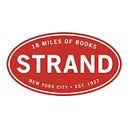Ban This Book (If You Can)
Thinkolio professor discusses “obscene” books
Censorship is paradoxical. It seems like the kiss of death for creativity, but it can be a tremendous incentive for devising symbolic and linguistic codes archly made intricate to fool the eyes and ears of the censors. It plays a vital role in the story of literary Modernism, including the notorious cases of James Joyce, D. H. Lawrence, Djuna Barnes, e.e. cummings, Ernest Hemingway and John Dos Passos. In addition to my dedication to the literary critical issues posed by Joyce’s book especially and the development of Modernism, I am as well interested in the international ramifications of censorship in our own time.
“This is personal for me. In 1984 I lived, loved, taught and wrote under extreme government censorship in China…”
The ultimate cat and mouse game with the censors is played on a global scale. More than a decade before the Nazi book burnings turned public opinion against the obscenity laws, writers and their publishers defied the law, and it is worth examining the extraordinary symbolic richness of the writing that fooled the censors (Solzhenitsyn, Du Fu) as well as the ways that some writers and editors caved in to the authorities (Dos Passos).
This is personal for me. In 1984 (the date almost seems ironic) I lived, loved, taught and wrote under extreme government censorship in China while helping dissidents create the democracy movement that would ultimately lead to the Tiananmen Square protests of 1989. Below are some books I recommend on the topic.
If you’re interested in learning more I’d love if you could join me at the Strand on Sept 29th for an Olio where I intend to not only track the network of censorship that targeted Joyce’s Ulysses and other “obscene” books, in their day, but examine the insidious ways that censorship operates in our own time here, in China, Russia, Cuba and supposedly “free” societies.
Reading List:
Nonfiction
The Zhivago Affair: The Kremlin, the CIA and the Battle Over a Forbidden Book, Peter Finn and Petra Couvée
The Most Dangerous Book: The Battle for James Joyce’s Ulysses, Kevin Birmingham
The Rushdie Fatwa and After: a Lesson to the Circumspect, Brian Winston
Obscene Modernism: Literary censorship and experiment 1900–1940, Rachel Potter
Free as Gods, Charles Riley
Fiction
The Enormous Room, e.e. cummings
Tulips & Chimneys, e.e. cummings
Nightwood, Djuna Barnes
The Sun Also Rises, Ernest Hemingway
Three Soldiers, John dos Passos
Meet the Prof: Charles Riley
Charles Riley II, PhD, is an arts journalist, curator and professor at Clarkson University. He is the author of thirty-two books on art, architecture and public policy. Upcoming books include Free as Gods (University Press of New England) and Rodin and his Circle (Chimei Museum, Taiwan).
If you like what you read, give us a 👏 so other readers can enjoy it, too!
For more literary content, follow Strand on Instagram 📷, Twitter 🐥, and Facebook 👤. Plus, sign up for our 📩 Strand Insider newsletter 💌!
